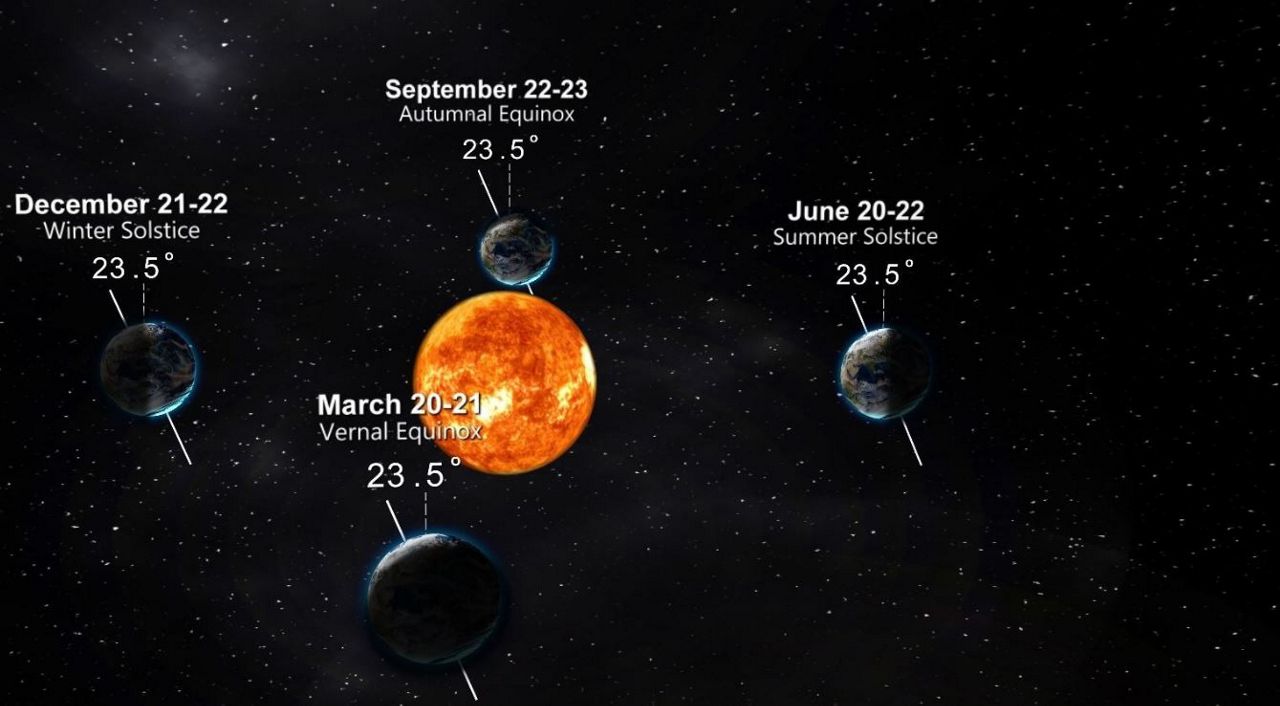ORLANDO, Fla. — It has felt like mid-to-late spring for a while in Central Florida, but spring doesn’t begin until March 20 at 5:58 p.m. this year.
- Spring season has kicked off -- at least "officially," astronomically
- Experts use meteorological seasons for consistency, record-keeping
- MORE: Spectrum News 13 Weather Experts Blog
This is the “official” or astronomical kick-off to the spring season.
The equinox is when the sun’s rays are directly over the equator, bringing approximately 12 hours of daylight and 12 hours of darkness.
So why do you sometimes hear meteorologists or climatologists referring to the start of spring on March 1 and the start of summer on June 1?
The simple answer is for the sake of consistency and record-keeping.
Astronomical seasons can fluctuate from year-to-year. For example, the spring equinox can occur any time between March 19 through March 21 while the summer solstice can begin between June 20 and June 22.
The astronomical seasons and the variations from the start date year-to-year are thanks to the tilt of the earth. The tilt is what gives us our various seasons.
But in the meteorological and climatological communities, consistency is key for record-keeping.
All of the seasons in the meteorology world are based on three months, whereas astronomically, the seasons could be longer or shorter from one year to the next, depending up on the earth’s orbit.
Each and every year — outside of a leap year — fall, winter, spring, and summer will have the same number days on the meteorological calendar of seasons, making it easier to determine seasonal averages for temperatures, rainfall, and snowfall.
So summer will be on June 1 on the meteorology calendar this year, just like all the past and future years.
Astronomically, the summer solstice is on Friday, June 21 at 11:54 a.m. for 2019.




